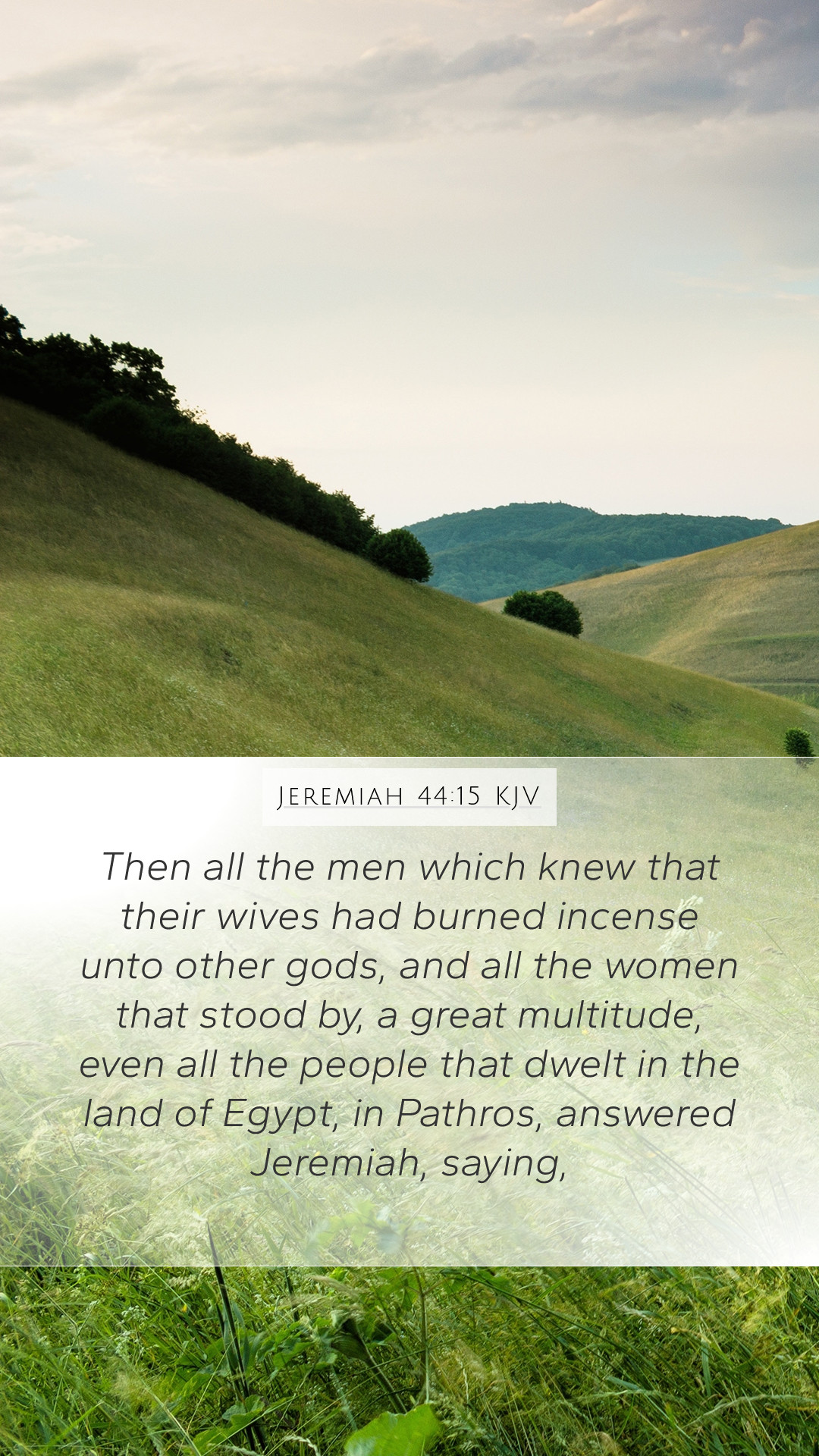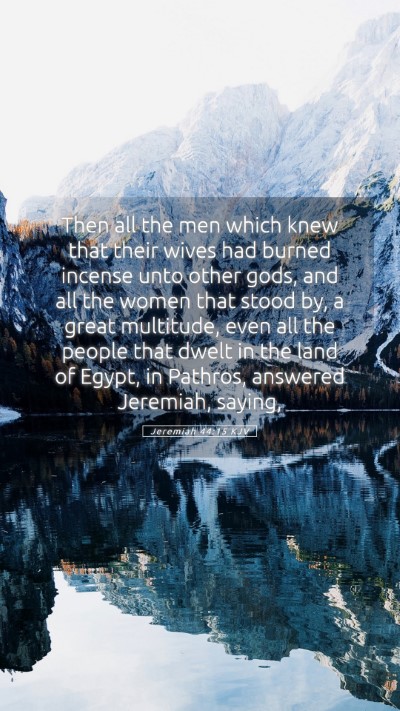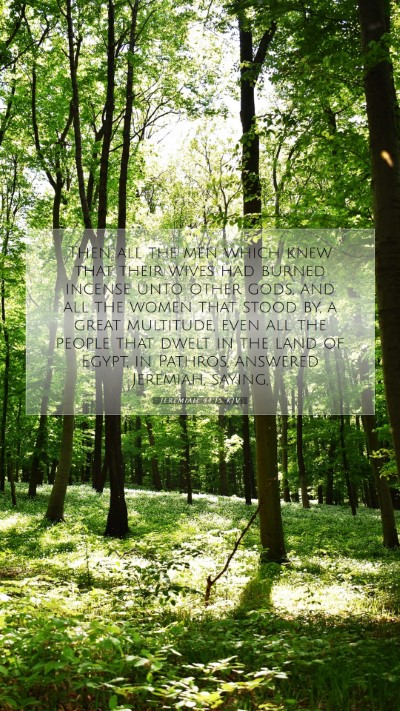Bible Verse Commentary: Jeremiah 44:15
Verse: "Then all the men who knew that their wives had burned incense to other gods, and all the women who stood by, a great multitude, even all the people who dwelled in the land of Egypt, in Pathros, answered Jeremiah, saying."
Understanding the Context
This passage occurs during a period of turmoil for the people of Judah, who had fled to Egypt. They had previously faced the Babylonian conquest and were grappling with their faith in God amidst foreign influences. Jeremiah, God's prophet, was sent to warn them about the consequences of their idolatry.
Insights from Public Domain Commentaries
Matthew Henry's Commentary
Henry emphasizes the rebellious nature of the people. The gathering of both men and women symbolizes the collective accountability of the community. They are aware of the wrongness of their actions but choose to defy divine authority. This highlights a crucial point about free will in the context of faith, as the people acknowledged their transgressions yet continued to practice idolatry.
Albert Barnes' Commentary
Barnes analyses the significance of the location—Pathros, Egypt. He notes how their choice to turn to Egypt, a place synonymous with oppression, reflects their desire to seek safety through idolatry rather than repentance. Their response to Jeremiah not only showcases a blatant rejection of God’s guidance but also serves as a spotlight on the worship of false gods that threatened to pull them away from their true identity as God’s people.
Adam Clarke's Commentary
Clarke elucidates the sociocultural implications of this verse. The mention of wives suggests that idolatrous practices had infiltrated the family unit. Clarke points out that the leaders’ influence on the households emphasizes the spiritual authority that comes with leadership roles. This dynamics calls for a deeper examination of how religious practices and beliefs can be passed down through familial structures, ultimately contributing to a collective spiritual crisis.
Key Takeaways and Applications
- Collective Accountability: The verse underscores the notion that communities share the consequences of their actions, both spiritually and socially.
- Rejection of Divine Guidance: The people's response signifies a broader lesson about the human tendency to reject guidance, especially in times of crisis.
- Influence of Leadership: Attention is drawn to the impact that leaders have on the religious and moral compass of families and communities.
- Idolatry in Modern Context: Reflecting on this passage prompts a personal examination of contemporary idols—anything that distracts from a faithful commitment to God.
Related Bible Cross References
- Jeremiah 2:5: Highlights the forsaking of God for worthless idols.
- Ezekiel 14:3: Discusses the issue of idolatry in the hearts of leaders.
- Isaiah 30:1-2: Emphasizes reliance on Egypt and the consequences of disobeying God.
Conclusion
Jeremiah 44:15 serves as a poignant reminder of the struggles faced by God’s people concerning idolatry and faithfulness. The collective response of the community challenges us to reflect on our own commitments. Understanding Bible verse meanings, interpretations, and the historical context provide deeper insights into how to apply these teachings to our daily lives.
For further study on this verse, consider engaging with Bible study resources that focus on scripture analysis and biblical exegesis to gain additional perspectives and lessons.


